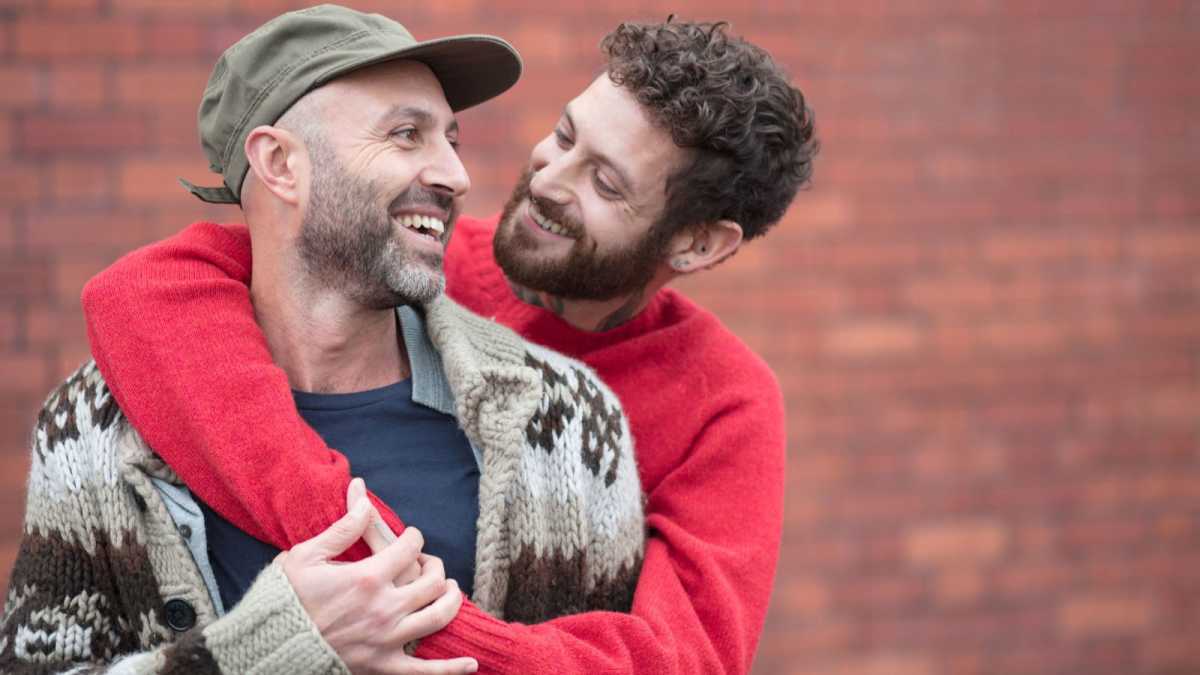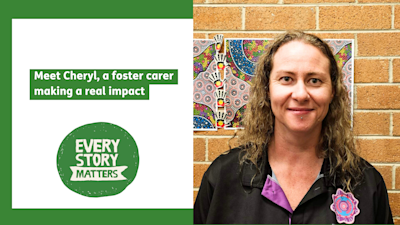If you are part of the LGBTQIA+ community, you may be wondering if fostering is something you can do. Well, the answer is yes, most definitely.

Image: Two men embrace and smile at each other.
We welcome foster carers from all walks of life. At Life Without Barriers, we have been supporting same-sex carers for over a decade to provide a safe, stable home for children in need.
Here are the top five things you need to know if you are part of the LGBTQIA+ community and considering foster care.
1. We welcome LGBTQIA+ foster carers
We have been an ally of the LGBTQIA+ community for many years. As a non-faith-based organisation, we welcome carers from all backgrounds and walks of life. We have been actively recruiting same-sex carers for many years, and we attend several pride events and Fair Days each year to help spread the message about the need for foster carers.
When carers Rebecca and Bree reflected on their foster care journey with us, Bree said, "I found some agencies to be more open than others. A lot of people think Rebecca and I are sisters, but when the penny finally drops, everyone is cool with it and thinks it's great."
"The wonderful Life Without Barriers staff have advocated for us in those brief moments where people react bizarrely and it's never been anything of major concern."

Image: Rebecca and Bree pose with a baby and a young girl.
2. We support you every step of the way
Once appropriate checks have been done and you are approved as a carer, we continue to support you on every step of the foster care journey. You will have access to specialist training, 24/7 on-call support, financial support, respite and opportunities to meet and connect with other foster carers who really understand what it's like.
3. Children have families who are important to them
When children are in care, their families are still very important to them. Children need their parents, siblings and other family members to be involved in their care and respected by their carers. We believe in family inclusion and are looking for foster carers who feel the same way.
We always support families and carers to build strong relationships that are in the best interest of the children. Whether it be through photos, contact visits, or working with families to transition a child back home after a period of time in care, we know that children do best when they are connected to their families, wherever it is safe to do so.
4. Not all care is full-time; there are different types
Becoming a foster carer can mean different levels of commitment. We are looking for carers to provide the types of care that work best with their life circumstances:
Respite can be one weekend a month or care during the school holidays
Emergency care can often be a few nights or weeks
Short-term care is often for a few weeks or months, while longer-term plans are being made
Long-term care is a forever home where the child can heal and grow but still keep in contact with their birth family.
5. Carers from the LGBTQIA+ community love being supported by Life Without Barriers
We have heard from many of our carers how supported and welcomed they feel as both carers and members of the LGBTQIA+ community at Life Without Barriers.
"When we were looking for a fostering agency we looked for support, communication and commitment to be there for us while we are there for those who need our care," said Jo, short-term foster carer.
"Life Without Barriers has been amazing. We feel part of a big family."
To become a carer, you can reach out to our friendly and helpful foster care specialists, who are ready to answer your questions. Whether you're looking to start the process or just want more info, our team can help.
You can contact us by phone 1300 592 227 or email carers@lwb.org.au. We are currently staffed Monday to Saturday. Or, you can fill out an enquiry form, and we will contact you.
If you aren't ready to speak to a human yet, that's ok! We have more carer FAQs here.


